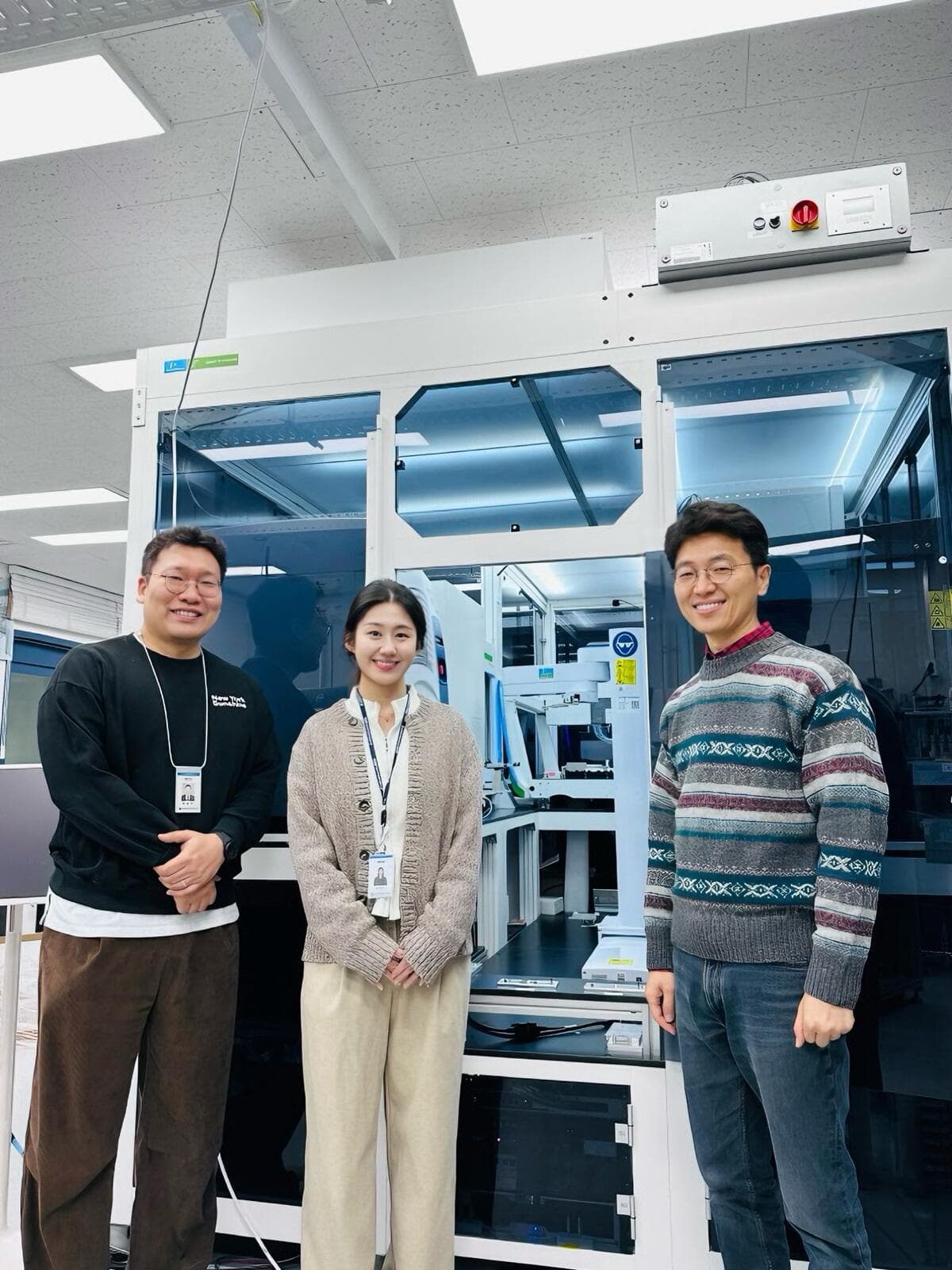News and Activities

March 24-27, 2026 — Second Annual Meeting
Daejeon, Korea
The second annual meeting will bring together all project partners to discuss progress, share findings, and plan future collaborations.

UK-Korea Engineering Biology Partnership Video
United Kingdom and South Korea
Watch our partnership video showcasing the collaboration between UK and Korean researchers in Engineering Biology.

December 2025 — UK-Korea Researcher Exchange deepens collaboration in enzyme engineering
Daejeon, Republic of Korea
University of Manchester PhD student Ruiyi Yang shares her experience at KRIBB's Synthetic Biology Research Centre, working on enzyme engineering for sustainable biomanufacturing as part of the UK-Korea collaboration.

November 2025 — DBT Engineering Biology Trade Mission to South Korea, 23-26 March 2026
South Korea
The UK Department for Business and Trade announces a trade mission for UK engineering biology companies to visit South Korea. Registration deadline: 23:59 GMT 21 December 2025.

November 2025 — Researcher Exchange Program kicks off with first student placement in Edinburgh
Edinburgh, UK
KRIBB student Seongkun Bak shares details of his experiences as an exchange student at The University of Edinburgh, Stracquadanio Lab, as part of the UK-Korea International Partnership on Engineering Biology.

July 2025 — Pioneering paper lays groundwork for smarter, connected biofoundries
London, UK
Imperial College London researchers have published groundbreaking work that establishes the foundation for more intelligent and interconnected biofoundries, advancing the field of synthetic biology automation.

June 2025 — UK-Korea Engineering Biology Symposium
London, UK
Imperial College hosted the UK-Korea symposium bringing together leading scientists, innovators, and policymakers from across the UK and South Korea. The event strengthened international collaboration in Engineering Biology and showcased exciting innovations from both countries.

June 2025 — New Memoranda of Understanding Signed
London, UK
Two new MoUs were signed, formalising collaborations between KRIBB, KAIST, and the University of Edinburgh, and between KRIBB, KAIST, and the University of Manchester. These agreements complete the formal partnership of all five institutions in the UK-Korea International Research Partnership.

June 2025 — First Annual Meeting
London, UK
Imperial College London will host UK and Korean partners for the first in-person meeting to facilitate collaboration and knowledge-sharing on biofoundry developments.
Abstraction hierarchy to define biofoundry workflows and operations for interoperable synthetic biology research and applications
Kim, H., Hillson, N.J., Cho, BK. et al. (2025). Nat Commun 16, 6056.
Lack of standardization in biofoundries limits the scalability and efficiency of synthetic biology research. Here, we propose an abstraction hierarchy that organizes biofoundry activities into four interoperable levels: Project, Service/Capability, Workflow, and Unit Operation, effectively streamlining the Design‑Build‑Test‑Learn (DBTL) cycle. This framework enables more modular, flexible, and automated experimental workflows. It improves communication between researchers and systems, supports reproducibility, and facilitates better integration of software tools and artificial intelligence. Our approach lays the foundation for a globally interoperable biofoundry network, advancing collaborative synthetic biology and accelerating innovation in response to scientific and societal challenges.